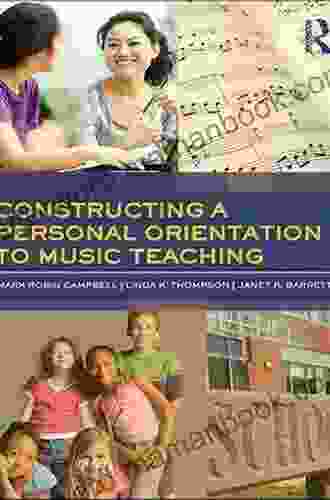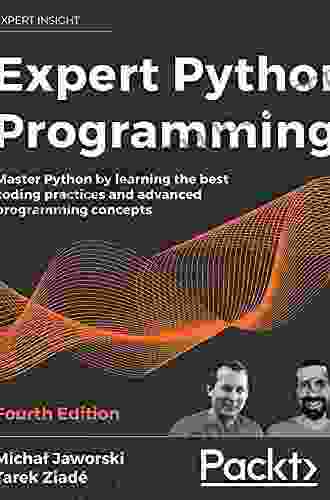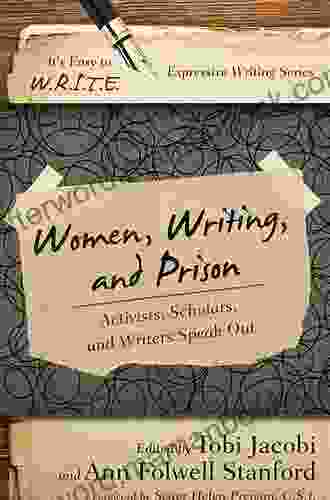Constructing Your Personal Orientation to Music Teaching: A Comprehensive Guide

Music teaching is a complex and multifaceted profession that requires a deep understanding of music, education, and the human experience. At the heart of effective music teaching lies a personal orientation that guides your choices and actions in the classroom.
4.2 out of 5
| Language | : | English |
| File size | : | 8370 KB |
| Text-to-Speech | : | Enabled |
| Screen Reader | : | Supported |
| Enhanced typesetting | : | Enabled |
| Word Wise | : | Enabled |
| Print length | : | 341 pages |
Constructing your own personal orientation to music teaching is an ongoing journey that involves introspection, research, and practical experience. This guide will provide you with essential insights and actionable steps to help you develop a meaningful approach to music education.
1. Reflect on Your Music Education
Begin by reflecting on your own experiences as a music learner. Consider the following questions:
- What aspects of music education most inspired and motivated you?
- What teaching methods and approaches resonated with you the most?
- What challenges did you face as a music learner?
Your answers to these questions will provide valuable insights into your own learning preferences and the type of music teacher you aspire to be.
2. Explore Different Music Education Philosophies
There are numerous music education philosophies that can inform your teaching approach. Some of the most common include:
- Orff Schulwerk: Emphasizes movement, improvisation, and student creativity.
- Kodály Method: Focuses on developing musicianship through singing, solfège, and folk music.
- Dalcroze Eurythmics: Integrates music with movement to develop rhythm, coordination, and musical expression.
- Suzuki Method: A parent-assisted approach that emphasizes early childhood music instruction.
Research different philosophies and consider which ones align with your values and goals as a music teacher.
3. Identify Your Teaching Values
Your personal orientation to music teaching should be grounded in your core values. Consider the following questions:
- What do you believe is the purpose and importance of music education?
- What qualities do you value in a music student?
- How do you prioritize student learning, skill development, and musical appreciation?
Clarifying your teaching values will help you make informed decisions about curriculum, assessment, and classroom management.
4. Develop a Music Curriculum
Your music curriculum should reflect your personal orientation and the needs of your students. Consider the following:
- Content: What musical concepts and skills will you teach?
- Sequencing: How will you organize and pace the curriculum to ensure student progression?
- Assessment: How will you evaluate student learning and provide feedback?
A well-developed curriculum will provide a roadmap for your instruction and ensure that students are making meaningful progress.
5. Plan Engaging Music Lessons
Effective music lessons are engaging, interactive, and tailored to your students' needs. When planning lessons, consider:
- Objectives: What specific musical skills or concepts will students learn?
- Activities: What activities will you use to introduce, practice, and reinforce musical concepts?
- Differentiation: How will you adapt lessons to meet the needs of all learners?
Well-planned lessons will create a positive and productive learning environment.
6. Build a Positive Classroom Culture
A positive classroom culture fosters student motivation and engagement. To create such a culture:
- Establish clear expectations: Communicate your rules and procedures at the beginning of the year.
- Create a respectful learning environment: Treat students with respect and encourage them to do the same for others.
- Provide positive feedback: Celebrate student successes and provide constructive criticism to support their growth.
A positive classroom culture will make music learning enjoyable and rewarding for everyone.
7. Continuously Reflect and Improve
Teaching is a reflective practice that requires continuous improvement. Set aside time to reflect on your teaching regularly. Consider:
- Student progress: Are students meeting your expectations and progressing musically?
- Teaching strategies: Are your lessons engaging and effective?
- Classroom management: Is the classroom environment conducive to learning?
Ongoing reflection will help you identify areas for growth and make necessary adjustments to your teaching approach.
Constructing your personal orientation to music teaching is an ongoing journey of introspection, research, and practical experience. By reflecting on your own music education, exploring different philosophies, identifying your teaching values, developing a music curriculum, planning engaging lessons, building a positive classroom culture, and continuously reflecting and improving, you can develop a meaningful approach to music education that will inspire and motivate your students. Remember that your personal orientation will continue to evolve and adapt as you gain more experience and deepen your understanding of music and teaching. Embrace the journey and strive to be the best music teacher you can be.
4.2 out of 5
| Language | : | English |
| File size | : | 8370 KB |
| Text-to-Speech | : | Enabled |
| Screen Reader | : | Supported |
| Enhanced typesetting | : | Enabled |
| Word Wise | : | Enabled |
| Print length | : | 341 pages |
Do you want to contribute by writing guest posts on this blog?
Please contact us and send us a resume of previous articles that you have written.
 Top Book
Top Book Novel
Novel Fiction
Fiction Nonfiction
Nonfiction Literature
Literature Paperback
Paperback Hardcover
Hardcover E-book
E-book Audiobook
Audiobook Bestseller
Bestseller Classic
Classic Mystery
Mystery Thriller
Thriller Romance
Romance Fantasy
Fantasy Science Fiction
Science Fiction Biography
Biography Memoir
Memoir Autobiography
Autobiography Poetry
Poetry Drama
Drama Historical Fiction
Historical Fiction Self-help
Self-help Young Adult
Young Adult Childrens Books
Childrens Books Graphic Novel
Graphic Novel Anthology
Anthology Series
Series Encyclopedia
Encyclopedia Reference
Reference Guidebook
Guidebook Textbook
Textbook Workbook
Workbook Journal
Journal Diary
Diary Manuscript
Manuscript Folio
Folio Pulp Fiction
Pulp Fiction Short Stories
Short Stories Fairy Tales
Fairy Tales Fables
Fables Mythology
Mythology Philosophy
Philosophy Religion
Religion Spirituality
Spirituality Essays
Essays Critique
Critique Commentary
Commentary Glossary
Glossary Bibliography
Bibliography Index
Index Table of Contents
Table of Contents Preface
Preface Introduction
Introduction Foreword
Foreword Afterword
Afterword Appendices
Appendices Annotations
Annotations Footnotes
Footnotes Epilogue
Epilogue Prologue
Prologue John Mccarthy
John Mccarthy Shontae Horton
Shontae Horton Daniel Zingaro
Daniel Zingaro Rachel Druten
Rachel Druten Acha Leke
Acha Leke Warren B Smith
Warren B Smith Clarissa Price
Clarissa Price Tella Olayeri
Tella Olayeri D L Stoner
D L Stoner General
General Amir Hegazi
Amir Hegazi Michael G Lafosse
Michael G Lafosse David Kherdian
David Kherdian Sheetal Venugopal
Sheetal Venugopal Kemberlee Shortland
Kemberlee Shortland Arkino Minus
Arkino Minus Robin Westen
Robin Westen Yusuke Murata
Yusuke Murata Ray Grillo
Ray Grillo Jorge Morel
Jorge Morel
Light bulbAdvertise smarter! Our strategic ad space ensures maximum exposure. Reserve your spot today!
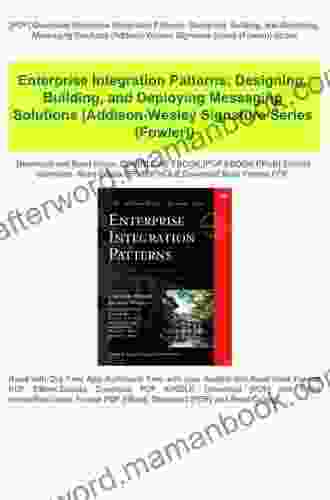
 Jace MitchellDesigning, Building, and Deploying Messaging Solutions: An Expert Guide to...
Jace MitchellDesigning, Building, and Deploying Messaging Solutions: An Expert Guide to... Bryson HayesFollow ·16.2k
Bryson HayesFollow ·16.2k Peter CarterFollow ·7.5k
Peter CarterFollow ·7.5k Theodore MitchellFollow ·18.2k
Theodore MitchellFollow ·18.2k Leslie CarterFollow ·11.2k
Leslie CarterFollow ·11.2k Ed CooperFollow ·16k
Ed CooperFollow ·16k Douglas PowellFollow ·8.3k
Douglas PowellFollow ·8.3k Mario BenedettiFollow ·4.5k
Mario BenedettiFollow ·4.5k Dylan MitchellFollow ·13.2k
Dylan MitchellFollow ·13.2k
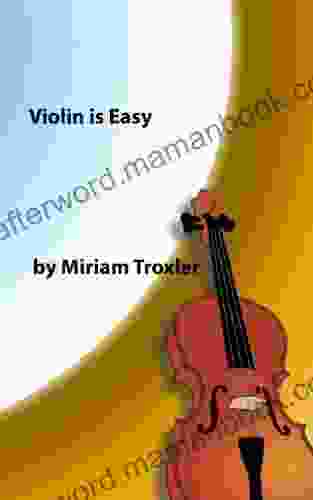
 Bryce Foster
Bryce FosterViolin Is Easy: A Comprehensive Guide for Beginners
The violin is a...

 Cristian Cox
Cristian CoxThe True Story Of The Ivy League Cowboys Who Raided The...
In the early 2000s, a group of Ivy League...
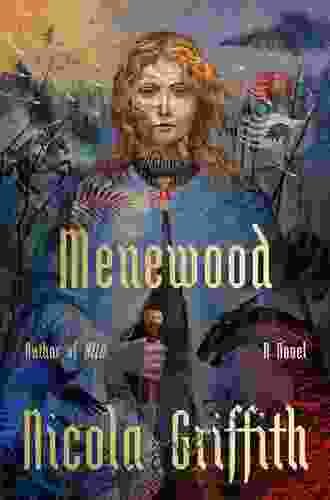
 Ken Follett
Ken FollettUnraveling the Enchanting World of Menewood: A...
Embark on an enthralling...
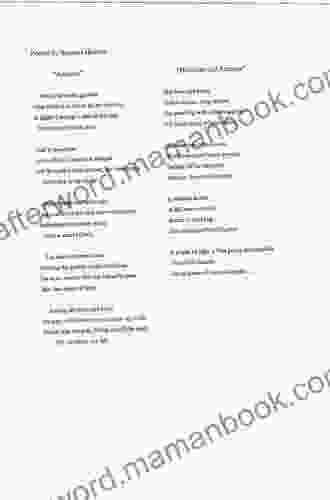
 Phil Foster
Phil FosterNorth Poems by Seamus Heaney: An Exploration of Place,...
Seamus Heaney's North...

 Jack Butler
Jack ButlerFleeting Encounters: The Enigmatic Transience of Maria...
In the annals of literary history, fleeting...
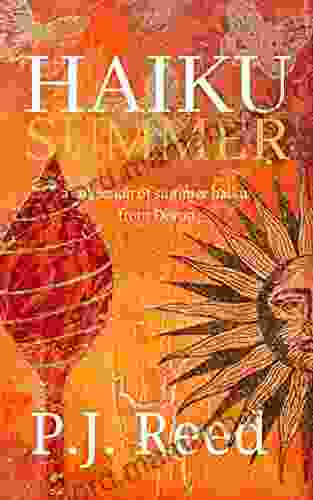
 Eliot Foster
Eliot FosterA Haiku Summer: Capturing the Essence of the Season in...
Summer is a time of warmth,...
4.2 out of 5
| Language | : | English |
| File size | : | 8370 KB |
| Text-to-Speech | : | Enabled |
| Screen Reader | : | Supported |
| Enhanced typesetting | : | Enabled |
| Word Wise | : | Enabled |
| Print length | : | 341 pages |


